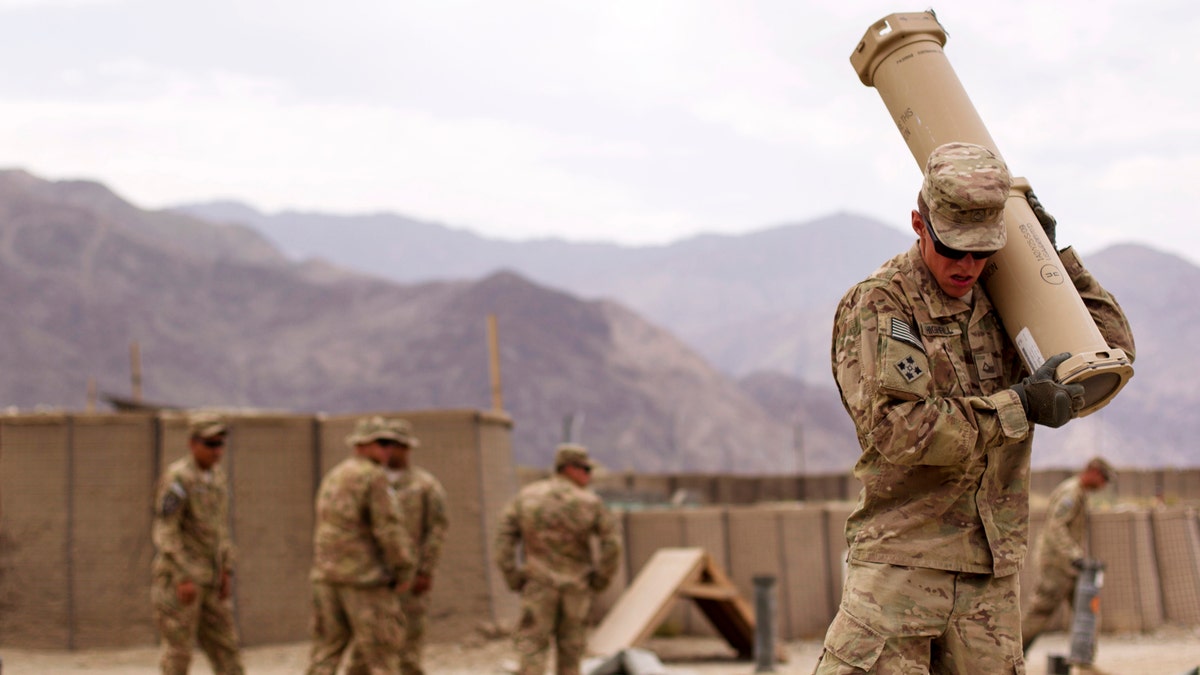
Secretary of Defense Chuck Hagel announced in May that the military's ban on transgender service should “continually be reviewed,” but stopped short of saying it should be overturned. Three retired generals are now saying the time is now. (Reuters)
The U.S. military’s ban on transgender servicemembers should be eliminated immediately, according to three retired generals, including the former chief medical officer of the U.S. Army.
Secretary of Defense Chuck Hagel announced in May that the policy should “continually be reviewed,” but stopped short of saying it should be overturned. Hagel said he “would be open” to rethinking the ban, prompting some advocates to believe that a policy change could be forthcoming. Three retired generals, including Maj. Gen. Gales Pollack, the Army’s former acting surgeon general, now say that ending the ban is “administratively feasible” and will not be overly burdensome or complicated.
“Three months have passed since [Hagel] announced a willingness to review the military’s ban on transgender service, an effort the White House indicated it supports,” the generals said in a statement issued by the Palm Center, a California-based think tank. “Our new report shows that implementation could proceed immediately and will be successful in its execution.”
The study, “Report of the Planning Commission on Transgender Service,” estimates that approximately 15,500 troops currently serving in the military and National Guard are transgender, or less than 1 percent of the 2 million-plus U.S. active duty and reserve troops. Additionally, 18 other nations, including Germany, Australia and the United Kingdom, allow those individuals to serve openly.
[pullquote]
The report also noted that unlike the ban on openly gay service that was repealed by Congress in 2010, the current transgender service ban is not a statutory bar but rather falls under the authority of the president and secretary of defense.
Shannon Minter, legal director of the National Center for Lesbian Rights, said the “discriminatory” policy should be replaced with a fully inclusive one, characterizing it as inconsistent with the military’s core values.
“In an earlier study, the former U.S. surgeon general, along with retired generals and flag officers, concluded that transgender personnel are as fit to serve and as ready for deployment to austere environments as anyone else,” Minter said in a statement.
Pollock, the former Army surgeon general, was joined in her statement by Brigadier General Clara Adams-Ender, former chief of the U.S. Army Nurse Corps, and Brigadier General Thomas Kolditz, a professor emeritus at the U.S. Military Academy at West Point.
“Our conclusion is that allowing transgender personnel to serve openly is administratively feasible and will not be burdensome or complicated,” the retired generals said in a statement released last week.
Several advocacy groups have praised Hagel’s comments, including the National Center for Transgender Equality, whose executive director, Mara Keisling, has said the willingness to review the ban is “overdue but very welcome.”
“If the Secretary were able to meet and talk with the trans servicemembers I've met, he'd understand the answer is self-evident,” Keisling said in May. “These are amazing people who serve even though they must hide a basic part of who they are."
A review of military policies pertaining to transgender soldiers could occur, as it also deals with questions regarding how to treat transgender prisoners. Bradley Manning, a former Army private currently serving a 35-year prison sentence for providing classified documents to WikiLeaks, now goes by the name Chelsea and is fighting to be treated as a woman. Manning is seeking a counselor who specializes in gender issues and also wants to get hormone replacement therapy, which military officials have said it does not provide, The Associated Press reports.




